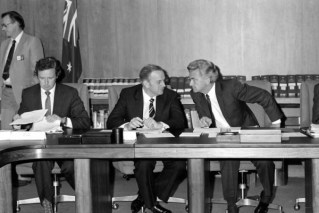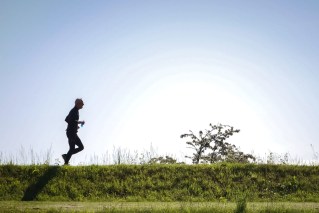Kids, Covid or just busy lives, but somewhere along the line we lost our ‘Twilight Zone’
It seems the harder we work to pay for the things we like, the less time we have to enjoy them, writes Shane Rodgers.


Early morning and late afternoon relaxation has become less frequent in our ever-busier lives. (Image: Queensland.com
I remember as a kid being told that a well-balanced day consisted of eight hours sleep, eight hours work, and eight hours play.
This seemed perfectly reasonable and, before the reality of contemporary adulthood kicked in, life was not far off that aspiration.
Fast forward to the “always- on” hyper-busy 21st century and the story is very different.
A generation ago, we seemed to have a zone between work and the evening meal that was ready-made for some recreation. People caught up for a drink after work, walked the dog, played some sport, took part in community activity or dropped in on a friend or relative. Let’s call it the twilight zone.
And somewhere in the change of millennium, most of us lost it.
In fact, if you examine Australian time-use statistics that were compiled by the Australian Bureau of Statistics during that period, the evidence is there.
Between 1992 and 2006, time spent on weekday socialisation and community activities fell by about two thirds. That was a massive change in a short period.
If you think back, there was no shortage of anecdotal evidence of the change:
• Service clubs, charities and community groups struggled to find members, leaders and volunteers;
• Peak hours tended to get worse and soak up the time between work and dinner;
• People were working longer hours and households were more likely to have two breadwinners trying to balance family life and work;
• Airports were full of business people day-tripping between states;
• Catching up after work became synonymous with neglecting your other responsibilities;
• Kids became really busy with organised after-school activities;
• Technology reached a point where we were constantly linked to work (and the world) without a clear zone of transition.
And on it goes…
The decline of the traditional weekday recreational fringe zone could easily be written off as an inevitable consequence of a globalised economy and tighter economic conditions. But curiously the change largely happened during one of the best runs of economic circumstances in a century.
Clearly there was also a lot of population growth and movement in our big cities and, in general, infrastructure that allowed efficient people movement slipped behind demand.
Another culprit was options. We are all trying to cram in too much and discretionary time in our “twilight zone” has become a casualty. Even worse, it appears social, community and family time may have been the biggest losers.
I am often reminded of the Malcolm Gladwell book Outliers and the chapter on the medical miracle that was Roseto, Pennsylvania. The town of 1500 people had exceptionally low rates of major chronic health disorders.
Doctors looked for the secret in geography and diet but found it in community. The best answer seemed to be that being part of an extraordinarily close-knit and highly socialised community was very beneficial for our well-being.
Yet this seems to be the very thing we are opting to throw out of the balloon basket when the options weigh us down. I doubt social media is an effective substitute.
One of the potential consequences of this is a chronic “friend drought” now being widely experienced.
Research released last year by the United States Survey Center on American Life found 49 per cent of people now have three or fewer friends compared with 27 per cent in 1990. A worrying 12 per cent have no close friends at all.
It could be worse. MIT research shows up to half of perceived friendships may not be reciprocated.
A recent study by Roger Patulny from the University of Wollongong and Marlee Bowen from the University of Sydney found Covid-19 had exacerbated the already troublesome isolation and loneliness being experienced by many Australians.
At a time when it appears the pandemic is prompting some major rethinking of how we live and work, it will be fascinating to see whether people start to claw back their twilight zone.
Many jobs have clearly become more flexible. More working from home has taken some of the sting out of peak hour commuting. People are finding more creative ways to integrate work and family life after they were finally given permission to question the status quo.
They say that the definition of being an adult is that you can’t remember the last time you didn’t feel a bit tired. Maybe that is because we forgot about eight hours sleep, eight hours work, and eight hours play.
Shane Rodgers is a business executive, writer, strategist and marketer with a deep interest in what makes people tick and the secret languages of the workplace.












